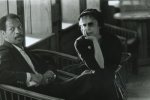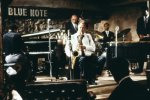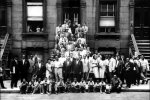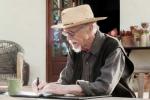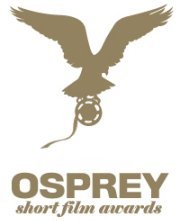Jazz
Jazz
Both Jazz and film fans will enjoy the classic Round Midnight along with two great documentaries, A Great Day in Harlem and Ornette: Made in America. Jazz and film fusion goes one step better for a special live event on Sunday night: Barker & Shaw at the Movies.
Featuring
A French music lover befriends a once-great American jazz artist and attempts to save him from self-destruction in this moody drama. Largely forgotten in his home country, Dale Turner played by Dexter Gordon, has moved to Paris in search of a more appreciative audience. He finds it in the form of Francis Borler (Francois Cluzet), a bebop aficionado who befriends the expatriate player. Borler soon becomes familiar with Turner's darker side, including his struggles with alcoholism, drug addiction, and depression. Fearing for the musician's life, the fan becomes his caretaker, an arrangement that leads to a brief improvement in Turner's health and fortunes but places great emotional strain upon them both.
Director Bertrand Tavernier pays great attention to the visual and aural details of the jazz world, with outstanding musical supervision provided by Herbie Hancock. Round Midnight's greatest asset, however, is Gordon's Academy Award-nominated performance, informed by his own life experiences. His naturally fascinating presence combines with the film's obvious love of the music and its milieu to provide what many have hailed as one of the more authentic and affectionate presentations of the jazz world on the silver screen.
Herbie Hancock won the Academy Award for Best Music, Original Score.
Shirley Clark's film captures Ornate Coleman's evolution over three decades. Returning home to Fort Worth, Texas in 1983 as a famed performer and composer, documentary footage, dramatic scenes, and some of the first music video-style segments ever made, chronicle his boyhood in segregated Texas and his subsequent emergence as an American cultural pioneer and world-class icon.
Clarke was a dancer who studied with Martha Graham before she moved out of performing and into the movie world in the late '50s. She became well known in independent film circles in the early '60s for her films "The Connection" and "The Cool World" before directing a 1964 documentary on poet Robert Frost that won an Academy Award.
Clark original project for a movie about jazz explored Ornate Coleman's decision to use his 11-year-old son Denardo as the drummer for his group. The project foundered in 1969 and was resurrected in 1983 for Coleman's first hometown appearance in 25 years. The film captures much of the improvisational flavour and unorthodox structure of Coleman's singular musical style.
"I knew I was connecting to the way he sounded because the first thing I laid down was the sound," Clarke said, "Having laid the spine down, which was his music, I edited to the music. That's where the rhythms and energy came from. The film looks like how Ornette sounds and has the same basic thinking."
Clarke's use of rapid-fire editing, the juxtaposition of images and its non-linear story line gives the film a far more sweeping scope than a standard portrait of an artist.
A print of that black-and-white photograph, one of the most famous in jazz history, had for years hung in the office of Jean Bach's husband, Bob, a television executive. On the stoop or standing in front of it were Count Basie, Lester Young, Gene Krupa, Dizzy Gillespie, Thelonious Monk, Art Blakey, Charles Mingus, Horace Silver, Sonny Rollins, Marian McPartland, Coleman Hawkins, Gerry Mulligan, Mary Lou Williams and 44 other musicians (along with children from the neighbourhood).
The late great bassist, Milt Hinton, who is one of the warmest and most charming people interviewed, was also a fine photographer. His wife captured much of the Great Day with a color 8mm movie camera, and it's a treat to see the ensemble milling about on the street and taking their places for the final picture.
Many of the people in the photo are not and never were household names. But the musicians Jean Bach tracked down to give their reminiscences are quick to give them their due. They recognize their skill and talent and recall the personalities of their lesser-known counterparts; the jazzmen really did warm up to Jean Bach if they didn't already know her, and they ended up talking about everything.
Jean Bach does the seemingly impossible with A Great Day in Harlem. She makes a 40-year-old B&W photograph come alive.
Trumpeter, composer and broadcaster Guy Barker joins forces with jazz vocalist, pianist and broadcaster Ian Shaw, in an evening celebrating the fabulous force that is The Cinema. Through carefully chosen movie songs and themes, this award-winning jazz coupling recreate the romance, the drama and the mayhem of the silver screen in one thrilling performance.
